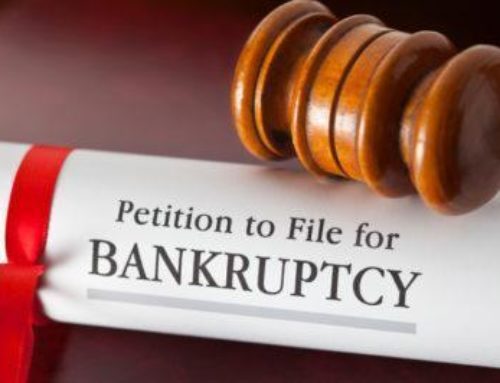 One of the most common myths about bankruptcy is that all of your debts will be forgiven. First, it depends what type of bankruptcy you file for. Chapter 13 bankruptcy creates a payment plan that allows people who file to pay off most of their debts. It is appropriate for people who fail the means test—meaning that the court determines that the have enough assets and income to be able to pay their debts. In Chapter 7 bankruptcy, the type appropriate for people with few assets, lower income, and greater hardships that make it impossible for them to pay off their debts, most debts will be discharged.
One of the most common myths about bankruptcy is that all of your debts will be forgiven. First, it depends what type of bankruptcy you file for. Chapter 13 bankruptcy creates a payment plan that allows people who file to pay off most of their debts. It is appropriate for people who fail the means test—meaning that the court determines that the have enough assets and income to be able to pay their debts. In Chapter 7 bankruptcy, the type appropriate for people with few assets, lower income, and greater hardships that make it impossible for them to pay off their debts, most debts will be discharged.
Still, there are some types of debt that will not be forgiven, even if you file Chapter 7 bankruptcy. If these types of debt are your primary problem, bankruptcy will not be the best solution for you. This is one of the many reasons why it is important to discuss your unique financial situation with a knowledgable bankruptcy attorney before you decide whether to file for bankruptcy. These types of debt cannot be discharged, even in Chapter 7 bankruptcy:
- Fraud. If you run up your credit cards or incur other debt when you know you will be filing for bankruptcy, you will be charged with fraud, and required to pay back what you owe. Other forms of fraud will also not be forgiven in bankruptcy.
- Dischargeable debt incurred to pay off non-dischargeable debt. For example, if you know you’ll be filing bankruptcy soon, so you use your credit card to pay off your student loan or your tax debt, that credit card debt will not be forgiven.
- Criminal fines, fees, restitution, and other criminal debts. This includes court fees, court-ordered judgments, victim’s compensation, personal injury and wrongful death claims, and other debts due to criminal negligence.
- Some tax payments. Some tax debts can be discharged in bankruptcy, but many cannot. This post from Nolo.com can help you understand the basics of bankruptcy law and taxes. Talk with your lawyer to find out if your specific tax debts can be discharged.
- Most student loans. Unless you can prove that your situation involves unusual hardship, your student loans will most likely not be discharged.
Before filing for bankruptcy, be sure to talk to us first. We can give you experienced bankruptcy advice and provide you with the best options for moving forward. Each case is unique, and we are dedicated to helping those in debt resolve their financial headaches so they can live productive lives.











